- Online car hire since 2005
- Popular countries
- Popular regions
- Popular cities
- Popular airports
- Car hire United Kingdom
- Car hire Italy
- Car hire United States
- Car hire Spain
- Car hire Portugal
- Car hire Poland
- Car hire France
- Car hire Ireland
- Car hire Greece
- Car hire Switzerland
- Car hire Morocco
- Car hire Canada
- Car hire Germany
- Car hire Cyprus
- Car hire Netherlands
- Car hire Austria
- Car hire South Africa
- Car hire Croatia
- Car hire Slovenia
- Car hire Australia
- Car hire England
- Car hire Florida
- Car hire Scotland
- Car hire Sardinia
- Car hire California
- Car hire Sicily
- Car hire Crete
- Car hire Tenerife
- Car hire Malta
- Car hire Corfu
- Car hire Lanzarote
- Car hire Majorca
- Car hire Madeira
- Car hire Fuerteventura
- Car hire Corsica
- Car hire Rhodes
- Car hire Menorca
- Car hire Wales
- Car hire Gran Canaria
- Car hire Azores
- Car hire London
- Car hire Malaga
- Car hire Dublin
- Car hire Manchester
- Car hire Geneva
- Car hire Orlando
- Car hire Faro
- Car hire Edinburgh
- Car hire Milan
- Car hire Porto
- Car hire Bristol
- Car hire Lisbon
- Car hire Amsterdam
- Car hire Birmingham
- Car hire Gdańsk
- Car hire Paphos
- Car hire Ljubljana
- Car hire Cagliari
- Car hire Warsaw
- Car hire Rome
- Car hire London Heathrow Airport
- Car hire Dublin Airport
- Car hire Malaga Airport
- Car hire Manchester Airport
- Car hire Orlando International Airport
- Car hire Geneva Airport (Switzerland)
- Car hire Faro Airport
- Car hire London Gatwick Airport
- Car hire Porto Airport
- Car hire Bristol Airport
- Car hire Edinburgh Airport
- Car hire Lisbon Airport
- Car hire Birmingham Airport
- Car hire Milan Malpensa Airport
- Car hire Gdańsk Airport
- Car hire London Luton Airport
- Car hire Paphos Airport
- Car hire Amsterdam Schiphol Airport
- Car hire Cagliari Airport
- Car hire Kraków Balice Airport
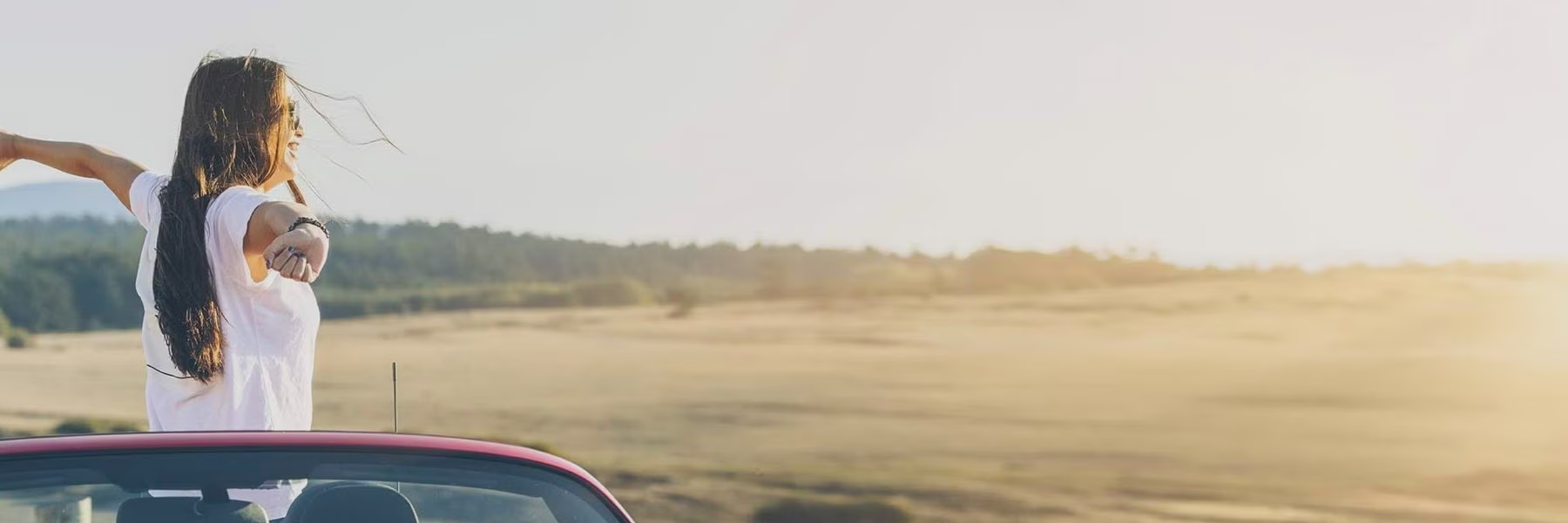
Car hire New Zealand
Save time and money. We compare the offers of car rental companies in New Zealand on your behalf.
- Free cancellation Up to 48 hours prior to the scheduled pick-up time
- Best price guarantee Have you found a better price? Let us know and we will make you a better offer.
- 24000+ pick-up locations Locations around the world

Car hire New Zealand
EasyTerra Car Hire New Zealand is an independent car hire comparison site. Our site compares prices from well-known car rental companies so that, as a customer, you can always reserve your car with us at a competitive rate.
Car rental offers in New Zealand
Whether you're looking for a small rental car or a station wagon for the entire family, we will always have a suitable vehicle at the lowest price. Below are some examples from our selection in New Zealand.

-
Autounion Car Rental From£ 12 /day

-
Snap Rentals From£ 53 /day

-
Snap Rentals From£ 58 /day

-
Autounion Car Rental From£ 12 /day

-
Autounion Car Rental From£ 12 /day

-
Ezi-Rent Car Hire From£ 19 /day

-
Mode Rentals From£ 14 /day

-
Snap Rentals From£ 15 /day -
Yesaway From£ 21 /day -
Enterprise From£ 30 /day

-
Snap Rentals From£ 19 /day -
Europcar From£ 21 /day -
Enterprise From£ 27 /day

-
Mode Rentals From£ 15 /day

-
Snap Rentals From£ 15 /day -
Europcar From£ 18 /day -
Enterprise From£ 22 /day

-
Snap Rentals From£ 20 /day -
Yesaway From£ 27 /day -
Enterprise From£ 32 /day

-
Autounion Car Rental From£ 13 /day -
Yesaway From£ 17 /day -
Snap Rentals From£ 19 /day

-
Mode Rentals From£ 13 /day

-
Ezi-Rent Car Hire From£ 19 /day -
Snap Rentals From£ 20 /day -
Ace Rental Cars From£ 21 /day

-
Ace Rental Cars From£ 16 /day -
Snap Rentals From£ 20 /day -
Ezi-Rent Car Hire From£ 23 /day

-
Ace Rental Cars From£ 17 /day -
Ezi-Rent Car Hire From£ 18 /day -
Snap Rentals From£ 19 /day

-
Snap Rentals From£ 20 /day -
Europcar From£ 21 /day -
Keddy By Europcar From£ 27 /day

-
Ace Rental Cars From£ 17 /day -
Thrifty From£ 23 /day -
Hertz From£ 32 /day

-
Ezi-Rent Car Hire From£ 18 /day -
Europcar From£ 64 /day

-
Ezi-Rent Car Hire From£ 20 /day -
Europcar From£ 55 /day

-
Mode Rentals From£ 16 /day

-
Autounion Car Rental From£ 16 /day -
Snap Rentals From£ 19 /day -
Mode Rentals From£ 19 /day

-
Snap Rentals From£ 21 /day -
Europcar From£ 26 /day -
Enterprise From£ 36 /day

-
Mode Rentals From£ 17 /day

-
Autounion Car Rental From£ 19 /day -
Yesaway From£ 30 /day

-
Keddy By Europcar From£ 21 /day -
Europcar From£ 28 /day -
Hertz From£ 34 /day

-
Mode Rentals From£ 20 /day

-
Budget From£ 20 /day -
Avis From£ 21 /day

-
Keddy By Europcar From£ 23 /day -
Europcar From£ 24 /day

-
Autounion Car Rental From£ 18 /day -
Yesaway From£ 21 /day

-
Snap Rentals From£ 19 /day

-
Snap Rentals From£ 22 /day

-
Snap Rentals From£ 20 /day -
Green Motion From£ 63 /day

-
Keddy By Europcar From£ 20 /day -
Snap Rentals From£ 22 /day -
Europcar From£ 23 /day

-
Ezi-Rent Car Hire From£ 23 /day -
Europcar From£ 27 /day -
Sixt From£ 29 /day

-
Ezi-Rent Car Hire From£ 21 /day -
Europcar From£ 25 /day -
Sixt From£ 27 /day

-
Keddy By Europcar From£ 24 /day -
Snap Rentals From£ 24 /day -
Europcar From£ 25 /day

-
Keddy By Europcar From£ 23 /day -
Europcar From£ 25 /day -
Routes From£ 33 /day

-
Ace Rental Cars From£ 17 /day -
Mode Rentals From£ 22 /day -
Autounion Car Rental From£ 27 /day

-
Ace Rental Cars From£ 21 /day -
Enterprise From£ 36 /day -
Alamo From£ 53 /day

-
Snap Rentals From£ 24 /day -
Keddy By Europcar From£ 29 /day -
Mode Rentals From£ 39 /day

-
Snap Rentals From£ 24 /day

-
Snap Rentals From£ 27 /day -
Yesaway From£ 60 /day -
GO rentals From£ 89 /day

-
Europcar From£ 25 /day -
Routes From£ 35 /day -
Keddy By Europcar From£ 56 /day

-
Europcar From£ 27 /day -
Keddy By Europcar From£ 28 /day -
Routes From£ 34 /day

-
Europcar From£ 27 /day -
Keddy By Europcar From£ 57 /day

-
Autounion Car Rental From£ 27 /day

-
Ace Rental Cars From£ 16 /day -
Budget From£ 30 /day

-
Ace Rental Cars From£ 20 /day -
Budget From£ 34 /day

-
Ezi-Rent Car Hire From£ 30 /day -
Alamo From£ 165 /day

-
Ezi-Rent Car Hire From£ 30 /day

-
Ezi-Rent Car Hire From£ 30 /day -
Snap Rentals From£ 42 /day

-
Ezi-Rent Car Hire From£ 30 /day

-
Ezi-Rent Car Hire From£ 31 /day -
Alamo From£ 165 /day

-
Keddy By Europcar From£ 31 /day -
Europcar From£ 33 /day -
Budget From£ 87 /day

-
Keddy By Europcar From£ 31 /day -
Europcar From£ 33 /day -
Routes From£ 37 /day

-
Snap Rentals From£ 19 /day -
Mode Rentals From£ 19 /day -
Green Motion From£ 60 /day

-
Snap Rentals From£ 21 /day -
Green Motion From£ 80 /day

-
Europcar From£ 25 /day -
Routes From£ 35 /day -
Keddy By Europcar From£ 56 /day

-
Europcar From£ 27 /day -
Keddy By Europcar From£ 57 /day

-
Keddy By Europcar From£ 41 /day

-
Ace Rental Cars From£ 45 /day -
Europcar From£ 57 /day -
Ezi-Rent Car Hire From£ 62 /day

-
Sixt From£ 46 /day -
Alamo From£ 169 /day -
Enterprise From£ 197 /day

-
Sixt From£ 48 /day -
Alamo From£ 120 /day -
Enterprise From£ 130 /day

-
Ace Rental Cars From£ 51 /day -
Europcar From£ 57 /day -
Ezi-Rent Car Hire From£ 66 /day

-
Snap Rentals From£ 53 /day -
GO rentals From£ 92 /day -
Hertz From£ 106 /day

-
Sixt From£ 56 /day -
GO rentals From£ 92 /day -
Alamo From£ 152 /day

-
Snap Rentals From£ 58 /day -
Thrifty From£ 95 /day -
GO rentals From£ 97 /day

-
Avis From£ 62 /day -
Budget From£ 86 /day

-
Budget From£ 85 /day -
Avis From£ 85 /day -
GO rentals From£ 100 /day

-
Hertz From£ 34 /day

-
Hertz From£ 35 /day

-
Ace Rental Cars From£ 16 /day -
Snap Rentals From£ 20 /day -
Thrifty From£ 24 /day

-
Keddy By Europcar From£ 20 /day -
Europcar From£ 22 /day

-
Keddy By Europcar From£ 21 /day -
Europcar From£ 26 /day

-
Autounion Car Rental From£ 20 /day -
Thrifty From£ 26 /day -
Hertz From£ 35 /day

-
Keddy By Europcar From£ 20 /day -
Snap Rentals From£ 22 /day -
Europcar From£ 23 /day

-
Keddy By Europcar From£ 21 /day -
Snap Rentals From£ 24 /day -
Europcar From£ 25 /day

-
Ezi-Rent Car Hire From£ 21 /day -
Yesaway From£ 26 /day -
Keddy By Europcar From£ 27 /day

-
Keddy By Europcar From£ 21 /day -
Europcar From£ 43 /day

-
Ace Rental Cars From£ 22 /day -
Snap Rentals From£ 22 /day -
Ezi-Rent Car Hire From£ 27 /day

-
Sixt From£ 27 /day

-
Budget From£ 28 /day -
Avis From£ 34 /day

-
Sixt From£ 29 /day

-
Hertz From£ 33 /day -
Sixt From£ 43 /day

-
Europcar From£ 34 /day

-
Europcar From£ 34 /day

-
Hertz From£ 35 /day -
Sixt From£ 47 /day

-
Budget From£ 37 /day -
Avis From£ 40 /day

-
Avis From£ 40 /day -
GO rentals From£ 45 /day
Popular cities in New Zealand
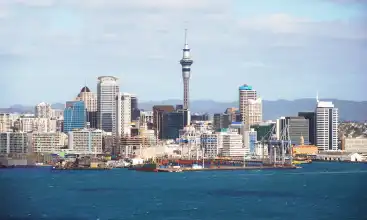
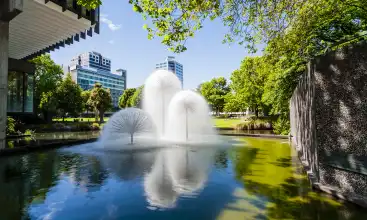
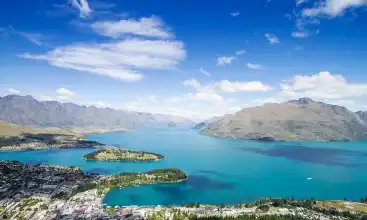
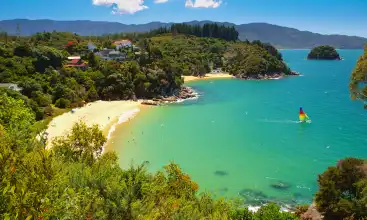
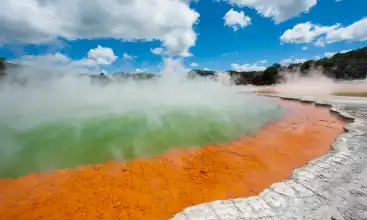
Useful tips for a well-prepared trip
Which insurance should I choose, and what's the deal with the deposit? Read our articles with useful information and tips to ensure you choose the right rental car for you.
Car rental locations in New Zealand
EasyTerra Car Hire compares rental car prices at the following destinations

Location information for New Zealand
New Zealand is best explored by rental car. EasyTerra Car Hire has over 100 pick-up locations in New Zealand. This means there is always a pick-up location close to your destination.
Most popular car hire locations in New Zealand
Introduction
New Zealand in the most isolated country in the world and lies in the southwest Pacific. The country is known for its beautiful and stretched out landscapes. There are clear blue lakes, mountains with glaciers, green forests, volcanoes and geysers, mud pools, waterfalls and beautiful beaches. The nature provides opportunities for everyone to relax and unwind. People who need more excitement and adventure will also enjoy New Zealand. One can go rafting, mountain climbing, cycling, abseiling and many more. The inhabitants of the country are friendly and hospitable.
History
Historically, New Zealand is seen as the youngest country in the world. The first inhabitants settled here only a thousand years ago. The Maoris are regarded as the first inhabitants of the country. Yet there is a presumption that the country was already inhabited by others, but this was never proven. According to stories, they discovered the country after leaving their native island Hawaiki (Polynesia) in search of new land.
The Maoris lived off fishing and hunting. In the time of the Maoris, New Zealand had the name ‘Aotearoa’. According to legend the country was given the name by the navigator Kupe when he first arrived and saw the clouds above. ‘Aotearoa’ means ‘Land of the big white clouds’.
New Zealand was officially discovered by the Dutchman Abel Tasman. He left in 1642 by ship, in search of the South Land, which we now know as Australia. It was an assignment from the Dutch East India Company (VOC). Instead of Australia, Tasman found an unknown island. This island is now called Tasmania. Tasman sailed further east, and found the west coast of present day New Zealand. He tried to dock in the north of the country, but was ousted by hostile Maoris. After the Maoris have slain some of his men, Tasman left the country without having been ashore.
In 1769 the British explorer James Cook succeeded in stepping onto the land and made contact with the Maoris. Cook claimed the area as an English colony. Many ships sailed from Europe to trade in New Zealand. A disagreement between the original inhabitants and the newcomers arose. In 1840 the Treaty of Waitangi was signed that officially stated New Zealand was an independent British colony.
To this day the Maoris claim that the country belongs to them. Therefore there is no end to the confrontations between the Maoris and the settlers. There was a time of bloody conflict. Nevertheless the British went through with the colonization of New Zealand. In 1840 the New Zealand Company was established. There were fixed prices for land and the proceeds were used for the crossing from Europe to New Zealand.
In 1846 the country was divided into different provinces each with their own governor. There was a system that each province had to function as an independent state. In 1865 Wellington became the country capital. In 1893 women received voting rights. New Zealand was the first country where this was possible. In England women only received this right 25 years later. New Zealand became an autonomous part of England.
During both World Wars many military soldiers from New Zealand fought alongside the British. In 1947 the country became independent. The first years after the independence New Zealand stayed closely associated with England, but soon the country was transformed into an independent industrial nation with a free market economy. In recent years much ground was given back to the Maoris, and their culture is considered as an important part of the identity of New Zealand today.
Society and culture
Almost four million people live in New Zealand. Only 75% are of European descent (mainly from England). The inhabitants of New Zealand are called Kiwis. Just over 10% are Maoris and about 5% are Polynesian. Many Asians also live in New Zealand. Three quarters of the population live on the North Island. The majority lives in or around the major cities.
Most inhabitants of New Zealand are Christians. There are Anglican, Presbyterian and Roman Catholic churches. You will also find Protestant, Methodist and Mormon churches, and Jews, Hindus and Buddhists live there. Many Maoris have their own Christian faith: Ratana and Ringatu.
There are two official languages in New Zealand: English and Maori. English is the medium of communication and has obtained its own accent in New Zealand. The vowels are pronounced in a flat way. Many words and names are also added. Maori has rarely been used for years but recently more attention has been paid to it. Maori lessons are even taught in various schools. The alphabet only has fifteen letters.
The culture of New Zealand is a hybrid of English and Maori culture. The inhabitants of the country hold sport deer to their hearts. New Zealanders are a sporty nation of which less than 80% practice a sport themselves. Rugby is the most popular sport, followed by cricket and golf. The landscapes offer many opportunities for water sports such as sailing, surfing and fishing. People also like adventurous sports. Climbing, abseiling, rafting or paragliding: nothing is too dangerous for a real Kiwi!
The inhabitants of New Zealand are generally friendly people who are open to different cultures. They like drinking a beer in the local pub. The country is even in the top three of most beer consuming countries. The country is also famous for the Maori art: impressive decorative carvings, special tattoos and a lot of dancing and singing.
Political situation
New Zealand has a parliamentary democracy but is also a constitutional monarchy. The British Queen Elizabeth II is the head of state. The Queen is represented by the Governor General. This is for a period of five years. New Zealand has no codified constitution. The constitutional structure is laid down in judicial decisions.
The parliament consists of one chamber, the House of Representatives, which seats 120 members. In statues it′s stipulated that five members of the parliament have to be Maoris. From the 120 members 20 ministers are chosen, which together would form the cabinet. The Prime Minister is the leader of the cabinet. The cabinet, together with the Governor General, has executive power. The legislative power is formed by the Governor General and the parliament.
Every three years the members of parliament are re-elected. Half of which are chosen through elections and the other half through party lists. Anyone eighteen years or older may vote. Two votes are cast: one vote for a party, and one for a person.
Helen Clark (of the center left Labor Party) has been the Prime Minister since 1999. There are currently seven parties representing the government. The Governor General of the country is Anand Satyanand (since 2007). New Zealand is part of the Commonwealth of Nations, United Nations, APEC (Asia Pacific Economic Cooperation), OECD (Organisation for Economic Cooperation and Development) and ANZUS (Australia, New Zealand, and the United States Security Treaty).
Economy
The economy of New Zealand is focused on the import and export of goods. More than half of the total surface of New Zealand is used for agriculture. Exports are therefore mainly agricultural products such as wool, meat and dairy. The agricultural sector provides more than 50% of the total income from exports. Examples of major import products are machinery, vehicles and electronics. Important trading partners are Australia, the United States and Japan. Through hydro and geothermal power plants the country provides for its own energy needs.
Two other sectors that are becoming increasingly important for the economy are the film industry and tourism. The beautiful nature and vast landscapes offer many possibilities for filming. A well known example is the ‘Lord of the Rings’ trilogy, (partly) filmed in New Zealand. Every year the country attracts more and more tourists. New Zealand takes account of the natural world. In 1991 a law was adopted that obliges everyone (including tourists) to deal gracefully with the environment: the ‘Resource Management Act’.
Since 1967 the currency of New Zealand has been the dollar (NZD). This is also known as the ‘Kiwi-dollar’. One New Zealand dollar is worth about 55 euro cents.
Geography and climate
New Zealand is the most isolated situated country in the world. Australia is the closest country, despite the distance being 2,000 km. New Zealand consists of two parts: the North Island and the South Island. Cook Strait (named after James Cook) separates the two islands. The total land area is approximately 268,000 km².
Although the North Island is much smaller than the South Island, three quarters of the population live here. Auckland has more than one million inhabitants. The capital, Wellington, follows with nearly 350,000 inhabitants. Other large cities on the North Island are Taupo, Gisborne, Rotorua, Coromandel, Hamilton, Napier, Hastings and New Plymouth. The North Island has a total surface of 114,453 km². There are many volcanoes, geysers and hot springs on this island.
The South Island has a total area of 150,718 km². The Southern Alps form the natural separation between the west and east coasts. With a height of 3,754 meters, Mount Cook is the top of the mountain. The largest city on the South Island is Christchurch with 335,000 inhabitants. Other large cities are Dunedin, Invercargill, Greymouth, Nelson, Queenstown and Wanaka. The South Island has no volcanoes, but fjords and glaciers. The most fjords are found in the Fiordland region (southwest).
Most parts of New Zealand have a moderate maritime climate. The winters are mild and the summers are warm. Rain falls throughout the year. The temperature is higher in the North Island than the South Island. In the mountainous regions, such as the Southern Alps, a sub polar climate dominates. The temperature here is low and there is much snow. The Southern Alps also make a difference in precipitation. The west is much wetter than the east of the South Island. In New Zealand summer runs from December to February. June, July and August are the winter months.
Traffic and infrastructure
It is possible in New Zealand to travel by public transportation. Busses as well as trains run between large cities and tourist areas. The railway system is not very extensive because of the hilly landscape. There are four fixed train routes connecting major cities: Auckland-Rotorua-Tauranga-Wellington, Wellington-Napier, Picton-Christchurch and Christchurch-Greymouth/Invercargill. The advantage of travelling by train is that they don′t stop often, and usually have comfortable interior.
To traverse over long distances you can also choose to travel by bus. Two major bus companies are InterCity and Newmans Coachlines. It is possible to buy a bus pass if you want to make multiple bus trips. This is ultimately cheaper.
Shipping is very important for New Zealand. There are large ports for freight, but also ferry services for smaller distances. The major ports are located in Whangarei, Wellington, Auckland, Picton, Lyttelton and Tauranga. The crossing from the North Island (from Picton) to the South Island (Wellington) can be made by ferry. This crossing is provided by Interislander Ferry. Ferries also depart from other places such as Bay of Islands, Rawene and Invercargill.
Large distances can be covered well by plane. Air New Zealand is the major airline. This company offers both domestic as well as international flights. There are international airports in Auckland, Christchurch and Wellington. Other (domestic) airlines are Origin Pacific and Virgin Blue. Flights through these companies are often cheaper but have to be booked in time.
New Zealand could also very well be explored by car or RV. With a car, remote areas can even be reached, creating a tremendous feeling of freedom. The total road network is approximately 93,130 km and is generally in good condition. Outside the large cities the roads can be very quiet, and it′s also wise to bring enough fuel. In New Zealand they drive on the left. The maximum speed outside the urban areas is 100 km/h.
Food and drinks
The ‘Kiwi-cuisine’ has mostly British influence. For example ‘fish & chips’ is one of the national dishes. Many sandwiches and savory pies (quiche) are eaten. The breakfast of the inhabitants of New Zealand is similar to the English breakfast: fried eggs with bacon and toast with marmalade. Thanks to the livestock in the country a lot of meat is eaten. Lamb is especially popular. The cuisine also has a variety of dishes with fish and seafood.
Because of the arrival of immigrants, dishes from many other countries are also found. In the large cities more Asian and Polynesian diners are found. People in New Zealand also like fruit and vegetables. Not only kiwis, but also strawberries, peaches and cherries are widely eaten. The Maoris have their own traditional method of food preparation. It′s called ‘hangi’: hot steam wells where vegetables, meat and fish are steamed.
New Zealand has no abundance of restaurants. Residents prefer a quick bite in a hamburger restaurant, snack bar or cafe. In both Australia and New Zealand ‘Bring Your Own’ restaurants are found. In these restaurants you can take your own drinks. Tipping is not mandatory, but common. It′s also certainly appreciated.
New Zealanders are known for their beer consumption. National beers are Lion Red, Steinlager and DB Draught. In the large cities there are many pubs. Here one often comes after work for a beer. During the daytime, mainly tea is drunk. Like the English, New Zealanders drink their tea often with a dash of milk. Wine has recently become more popular. The climate in the inland lends itself well to winegrowing. Famous wine regions are Hawke’s Bay and Martinborough (on the North Island) and Wairau Valley and Waipara Valley (on the South Island).
Time zone
New Zealand lies in the time zone GMT +12. The entire country is in one time zone. On the first Sunday of October the clock is set one hour ahead (winter time). On the third Sunday of March the clock is set back an hour (summer time).
Accommodation
Hotels in New Zealand are mostly standard. They are comfortable and good, but often not very special. Larger and more luxurious hotels are found primarily in major cities. There are also ‘lodges’ in nature parks where you can stay overnight. These are often found at a lake, river or beach. The service here is excellent, but it's not a cheap way to lodge. Many tourists choose other options. There are camp sites across the country in the most unique locations. It is possible to set up a tent here, but mostly there are site cabins or small rented flats. Tourists also cross the country by RV. With an RV you can stay the night in a campsite, or simply in the wild. Most tourists - especially young - sleep in hostels. There is a large and widespread supply throughout the country. Most hostels in New Zealand are comfortable, clean and relatively cheap.
External resources
For more information on New Zealand, we recommend Google and the following sources:
Practical information
-
CurrencyNew Zealand dollar
-
Driving directionLeft
-
City speed limit50 km/h
-
Freeway speed limit100 km/h
-
LanguageEnglish, Māori
-
Popular car categorySUV
What most people want to know
The following questions and answers are a selection of the most popular questions. If you do not find the answer to your question, have a look at the Frequently Asked Questions page or contact us.
- Ezi-Rent Car Hire
- Ace Rental Cars
- Europcar
- Avis
- Alamo
- Enterprise
- Dollar Rent a Car
- East Coast Car Rentals
- National Car Rental
- Budget
- Thrifty
- Sixt
- Keddy By Europcar
- Green Motion
- Hertz
- Autounion Car Rental
- Snap Rentals
- GO rentals
- Yesaway
- Mode Rentals
- Moto Car Rental
- NÜ Car Rentals
- Apollo Car Rental
- Economy Rent a Car
- Right Cars
- CHEAPA
- Yes Rentals
- Red Spot Car Rental
- Routes
- Alpha Car Hire
- Bargain Car Rentals
- Travel Car
- Smart Rent
- Mighty Cars & Campers
- McRent
- KEA Campers
- Britz Motorhomes
- Carwiz rent a car
- SurPrice car rentals
- FireFly Car Rental


